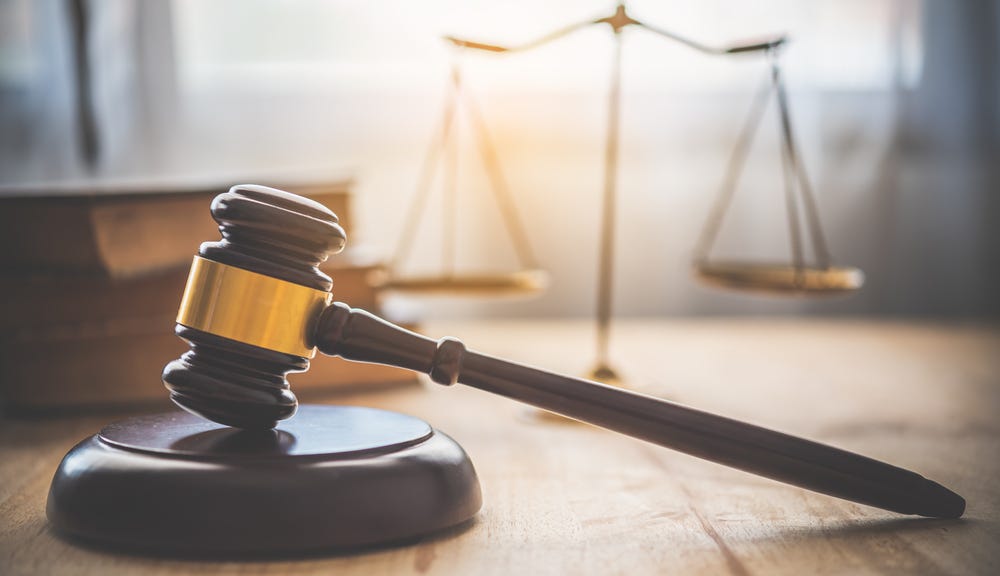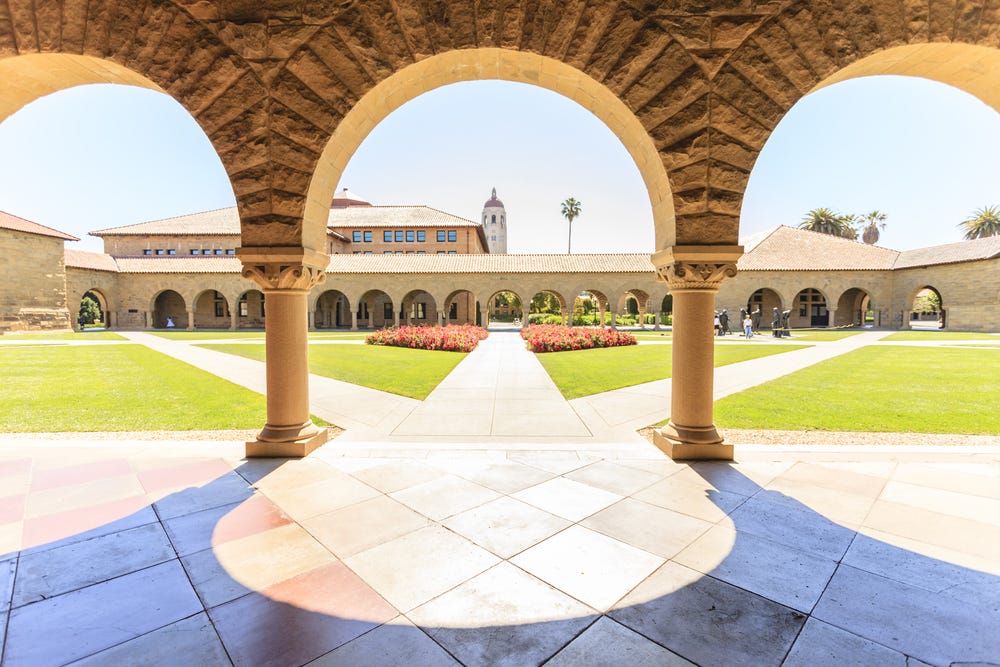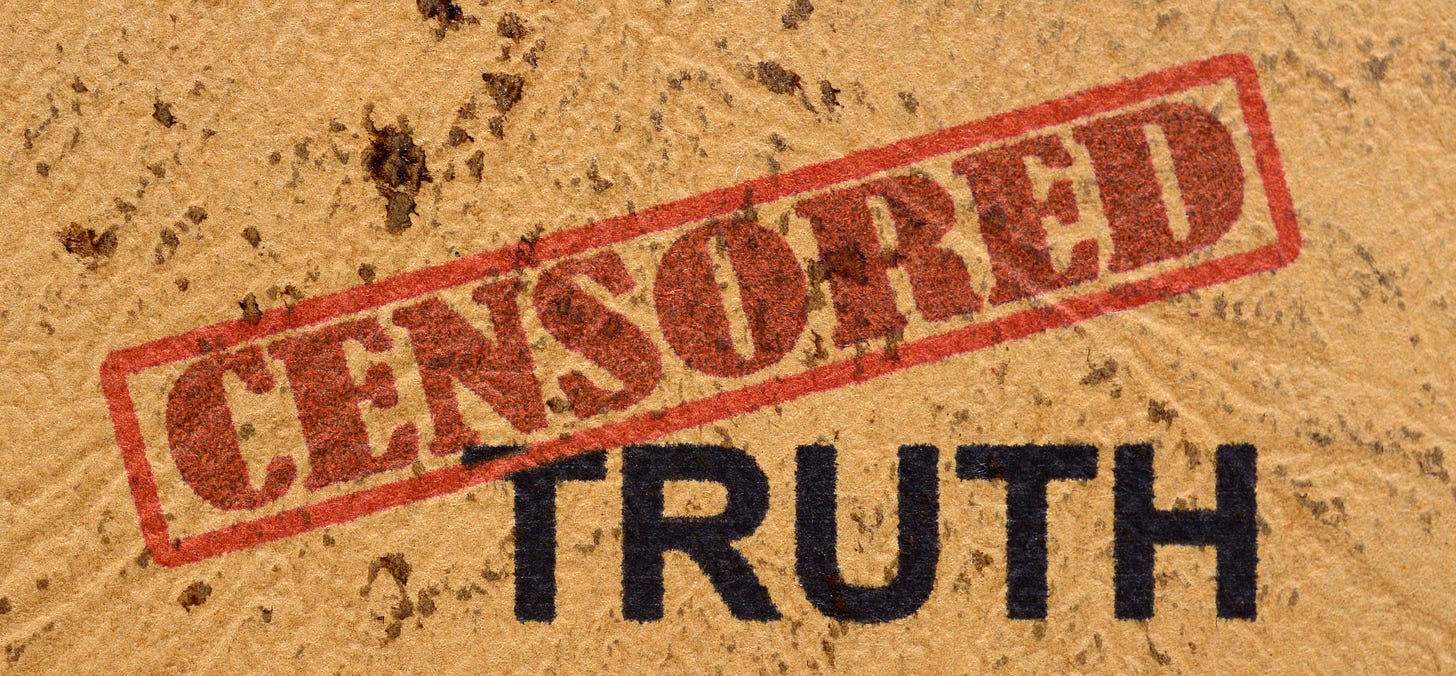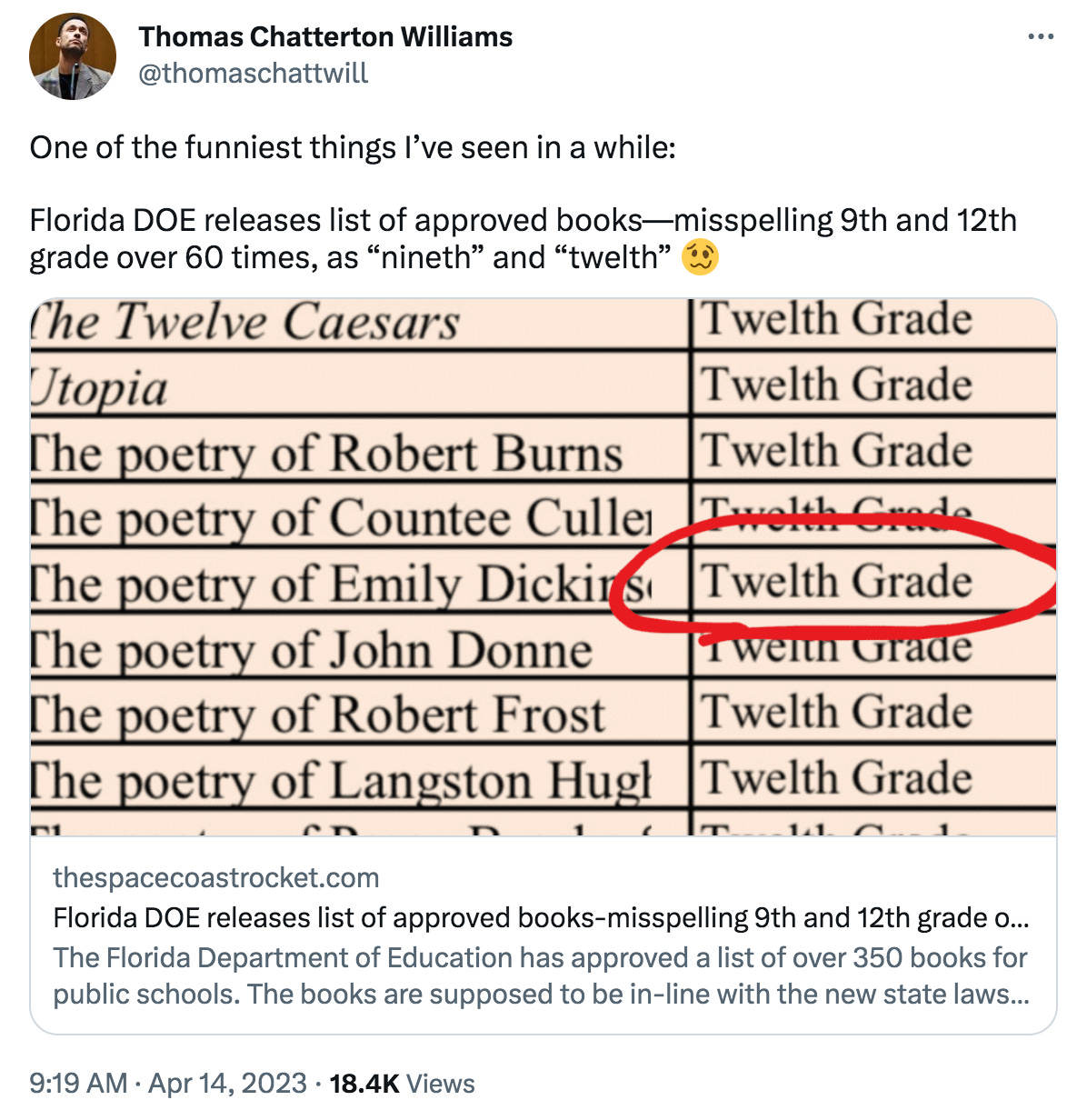E-Pluribus | April 14, 2023
Censorship gets its day in court; Stanford is just getting started on free speech; and whoops - the truth keeps getting censored.
A round-up of the latest and best writing and musings on the rise of illiberalism in the public discourse:
Jenin Younes: America’s Censorship Regime Goes on Trial
The Founders had a healthy fear of the potential power of the federal government. (For example, see the latest at Pluribus on the never-ending national “emergencies”). At Tablet Magazine, Jenin Younes reports on a court case in Missouri that aims to expose how far the government was willing to go during the pandemic to suppress information that ran counter to the official line.
As COVID-19 inoculations became widely available to the American public, the Biden White House came to view vaccine hesitancy as a significant political problem. Beginning in spring 2021, the administration explicitly and publicly blamed social media platforms for vaccine refusal: By failing to censor “misinformation” about the vaccines, the president infamously alleged, tech companies were effectively “killing people.” The president’s incendiary accusation was accompanied by threats of regulatory or other legal action (should the companies refuse to comply) from various high-ranking members of the administration, including former White House Press Secretary Jennifer Psaki, Surgeon General Vivek Murthy, and Department of Homeland Security (DHS) Secretary Alejandro Mayorkas. Psaki boasted that government officials were in regular touch with social media platforms, telling them what and in some cases even whom to censor.
[ . . . ]
The administration’s public threats, combined with the corresponding campaign of social media censorship, prompted several prolific social media users to file lawsuits against the Biden administration and a number of federal agencies alleging that their First Amendment free speech rights had been violated.
One of the First Amendment’s fundamental promises to all American citizens is freedom from government-induced, viewpoint-based censorship. “If there is any fixed star in our constitutional constellation, it is that no official, high or petty, can prescribe what shall be orthodox in politics, nationalism, religion, or other matters of opinion,” the Supreme Court explained in 1943. A doctrine known as state action theory explicitly prohibits the government from using private entities as intermediaries to do what it cannot do directly. In the court’s words, it is “axiomatic that a state may not induce, encourage or promote private persons to accomplish what [the state] is constitutionally forbidden to accomplish.”
The plaintiffs in the social media cases argued that, since the First Amendment prohibits the government from censoring Americans for expressing certain views, government actors likewise cannot coerce, direct, or collude with private social media platforms to suppress airing of perspectives disfavored by the United States government.
Read it all here.
Michael B. Poliakoff & Steven McGuire: Stanford Law Dean Has the Right Ideas But Needs to Do More
Stanford University’s response to the student-led and administration-abetted shout down of a visiting federal judge had gotten high marks from free speech advocates. But at Real Clear Education, Michael Poliakoff and Steven McGuire write that what Stanford is doing is really just the beginning of what needs to be done to ensure progress continues.
Stanford Law School dean Jenny Martinez has received praise—some of it justified—for her recent letter, in which she defends free expression and institutional neutrality at the school and outlines next steps in the wake of the shout-down of Fifth Circuit Judge Stuart Kyle Duncan last month.
[ . . . ]
[T]he dean’s letter far exceeds what we usually expect from university administrators. Dean Martinez properly references the First Amendment and California’s Leonard Law, which prohibits private colleges and universities from sanctioning students for speech that would otherwise be protected by the First Amendment or the California Constitution’s free-speech clause. She then adeptly explains that heckling and shout-downs, as opposed to “non-disruptive counter-speech,” cannot be tolerated by college administrators. This neutralization of “speech we hate” with loud noises robs all Stanford students of the opportunity to gain a better understanding of legal arguments, whether they agree with them or not.
[ . . . ]
But it is not enough to protect free expression at Stanford Law School. Dean Martinez’s letter also announces that none of the disrupters will be sanctioned for shouting down a federal judge. She questions whether the university could equitably and fairly identify those who “crossed the line” and adds that administrators at the event sent “conflicting signals about whether what was happening was acceptable or not.” Yet, the students knew the policy and were warned in advance. If they do not face consequences, what message does this send?
We must also wait to see what will become of Dean Steinbach, who is currently on leave and who recently attempted to defend her actions in the Wall Street Journal. Her insistence that she acted appropriately suggests that she might not be a fit for a law school committed to free expression and institutional neutrality.
Read it all.
John Stossel: The Media and Politicians Keep Trying To Censor Things That Turn Out To Be True
The past few years have seen an increase in government efforts (with much of the media tagging along) to root out alleged mis- and disinformation. The problem is, as John Stossel points out at Reason, that too often the information turns out to have been true.
The White House asked Facebook to kill what they called "disinformation," even urging them to censor private WhatsApp messages.
Now that Elon Musk owns Twitter and opened up the company's internal files, we know that censorship requests came from "every corner" of government, as journalist Matt Taibbi put it.
Even individual politicians tried to censor.
Sen. Angus King's (I–Maine) staff complained about Twitter accounts that they considered "anti-King." Rep. Adam Schiff's (D–Calif.) office asked Twitter to suppress search results.
Fortunately, Twitter refused.
But the sad truth is that lots of government agencies and media tyrants want to limit what you read and hear.
Read the whole thing.
Around Twitter
Wesley Yang with an observation on how the transgender affirmation model is a reflection of the lack of parental authority and responsibility:
Here’s Reason’s Emma Camp on “trigger warnings”:
And finally, Thomas Chatterton Williams finds another reason to be concerned about our education sistum… er, system:









